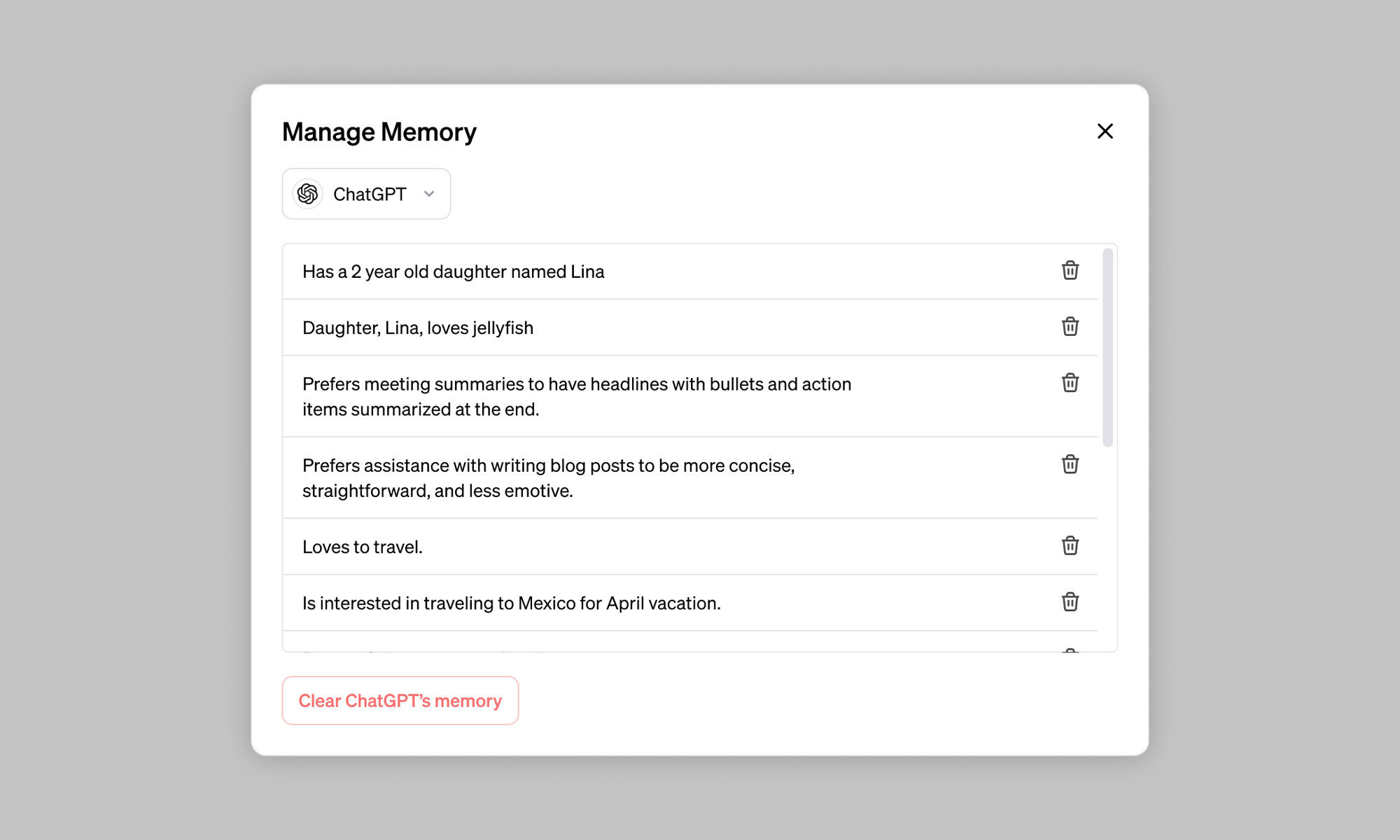News
Introducing ChatGPT’s New Feature: Conversation Recall
The new memory feature can recall past interactions for personalized assistance. OpenAI claims privacy has not been compromised.

Interacting with AI chatbots has often presented a challenge: once a conversation concludes, all context is lost. The AI fails to retain pertinent details, hampering its potential as a true digital assistant capable of providing personalized guidance.
OpenAI has now addressed this limitation by introducing a memory feature to ChatGPT, enabling the bot to recall important information from past interactions and utilize it in subsequent queries.

The mechanism is straightforward: users can prompt ChatGPT to remember specific details, such as a child’s peanut allergy or an email signature preference. Subsequently, the bot stores this information and applies it to future interactions and tasks.
Furthermore, the system accumulates knowledge organically over time, enhancing its understanding of user preferences and requirements.
Each custom GPT instance, like Books GPT, maintains its distinct memory, enabling more tailored experiences. For instance, Books GPT can recall previously read books and preferred genres. This feature is particularly beneficial for those using the diverse range of chatbots available in the GPT Store.
Also Read: Joby To Launch High-Speed Air Taxi Service In Dubai
Although no different to the data storage practices of Google and others, concerns regarding privacy persist. OpenAI assures users of control over ChatGPT’s memory, with sensitive topics such as health data not automatically retained. Users can instruct the bot to forget information, supplemented by subtle adjustments accessible through the Manage Memory tab in the settings. For those uncomfortable with the concept, the option to disable the feature entirely also exists.
Currently in beta, the memory feature is being gradually introduced to a limited number of ChatGPT free and Plus users, with plans for broader availability in the future. In the interim, those intrigued by the concept can glimpse into a future that’s beginning to look a lot like the movie “Her”.
News
Rabbit Expands Hyperlocal Delivery Service In Saudi Arabia
The e-commerce startup is aiming to tap into the Kingdom’s underdeveloped e-grocery sector with a tech-first, locally rooted strategy.

Rabbit, an Egyptian-born hyperlocal e-commerce startup, is expanding into the Saudi Arabian market, setting its sights on delivering 20 million items across major cities by 2026.
The company, founded in 2021, is already operational in the Kingdom, with its regional headquarters now open in Riyadh and an established network of strategically located fulfillment centers — commonly known as “dark stores” — across the capital.
The timing is strategic: Saudi Arabia’s online grocery transactions currently sit at 1.3%, notably behind the UAE (5.3%) and the United States (4.8%). With the Kingdom’s food and grocery market estimated at $60 billion, even a modest increase in online adoption could create a multi-billion-dollar opportunity.
Rabbit also sees a clear alignment between its business goals and Saudi Arabia’s Vision 2030, which aims to boost retail sector innovation, support small and medium-sized enterprises, attract foreign investment, and develop a robust digital economy.
The company’s e-commerce model is based on speed and efficiency. Delivery of anything from groceries and snacks to cosmetics and household staples is promised in 20 minutes or less, facilitated by a tightly optimized logistics system — a crucial component in a sector where profit margins and delivery expectations are razor-thin.
Despite the challenges, Rabbit has already found its stride in Egypt. In just over three years, the app has been used by 1.4 million customers to deliver more than 40 million items. Revenue has surged, growing more than eightfold in the past two years alone.
Also Read: Top E-Commerce Websites In The Middle East In 2025
CEO and Co-Founder Ahmad Yousry commented: “We are delighted to announce Rabbit’s expansion into the Kingdom. We pride ourselves on being a hyperlocal company, bringing our bleeding-edge tech and experience to transform the grocery shopping experience for Saudi households, and delivering the best products – especially local favorites, in just 20 minutes”.
The company’s growth strategy avoids the pitfalls of over-reliance on aggressive discounting. Instead, Rabbit leans on operational efficiency, customer retention, and smart scaling. The approach is paying off, having already attracted major investment from the likes of Lorax Capital Partners, Global Ventures, Raed Ventures, and Beltone Venture Capital, alongside earlier investors such as Global Founders Capital, Goodwater Capital, and Hub71.
























